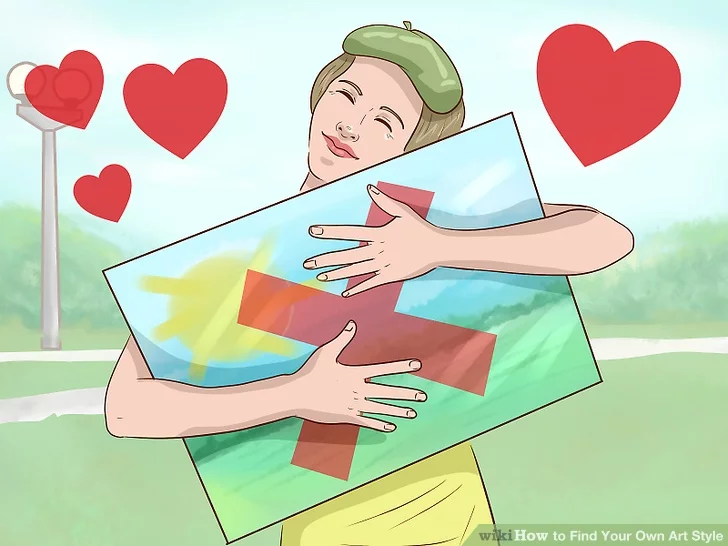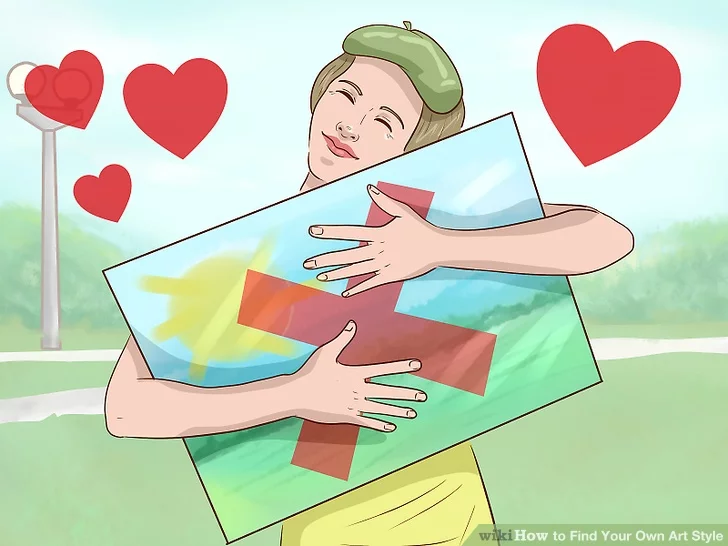您的购物车目前是空的!
How to Find Your Own Art Style
As an artist, your style naturally evolves and matures over time. To discover what truly defines your artistic voice, start by mastering the fundamentals of your chosen medium—whether it’s painting, drawing, sculpture, or printmaking. Create as much art as you can, experimenting freely along the way. Then, take a step back and look for the recurring themes, colors, or techniques that appear throughout your work. Those repeating elements reveal the essence of your unique artistic style.
Part1 .Finding Your Art Niche

1. Explore Different Artistic Genres for Style Inspiration
Begin by exploring a wide range of artistic genres to discover what resonates with your creative vision. You can browse online art galleries, read art journals, visit local exhibitions, or follow emerging artists to understand evolving trends and techniques. Immersing yourself in diverse visual languages helps you recognize the styles and moods that align with your personality.
🌐 Learn more: Tate Modern – Explore Art Genres
🖼️ Subheading: Discover Art Styles That Speak to You

2. Study Individual Artists Whose Work Inspires You
Once you’ve explored different styles, focus on artists whose work deeply inspires you. Treat them as your “style mentors” and study their techniques, inspirations, and creative processes. Analyze recurring patterns and motifs across their artworks. Following them on social media or watching behind-the-scenes videos can give insight into how they approach color, composition, and storytelling.
🌐 Learn more: The Art Story – Modern Artists Database
🖋️ Subheading: Learn from the Masters of Your Craft

3. Combine Favorite Elements into Your Own Artistic Voice
Start creating by integrating the techniques and visual elements you admire most into your own artwork. Instead of copying, reinterpret what you love—use similar brushstrokes, textures, or lighting approaches but adapt them to your vision. This helps you internalize techniques while keeping your art authentic.
For instance, if you’re inspired by an artist’s landscape paintings, try capturing nature in your own unique tone or palette. Remember: imitation is a stepping stone to originality, not the final destination.
🌐 Learn more: ArtStation – Artist Community
🎨 Subheading: Craft Your Signature Style

4. Hone Your Focus on a Specific Medium
Refine your skills by concentrating on one primary art medium that excites you most. Whether it’s digital art, watercolor, sculpture, or photography, mastering a single form allows you to deeply understand its possibilities. Experimentation is valuable—but commitment to one craft fosters consistency and a recognizable artistic identity.
For example, if you choose painting, explore color theory, lighting dynamics, and composition through both monochrome and vibrant works. The deeper your engagement with one medium, the stronger your stylistic voice becomes.
🌐 Learn more: MoMA Learning – Art Techniques & Media
🧭 Subheading: Focus Your Creative Energy
Part2 .Practicing Technical Skills

1️⃣ Master the fundamentals before focusing on style.
🔹 Build Your Technical Foundation
A solid understanding of core techniques will give you the tools to express your creativity. Study color theory, composition, lighting, and specific skills for your medium—whether drawing, painting, or sculpting. Push yourself to explore new subjects and materials rather than repeating one comfort zone approach.
📌 Reference Links:
- https://drawpaintacademy.com/color-theory/
- https://www.tate.org.uk/art/art-terms/l/light
- https://www.skillshare.com/blog/color-theory-for-artists/

2️⃣ Challenge yourself with unfamiliar methods.
🔹 Expand Your Creative Toolbox
Growth happens outside your comfort zone. Try different mediums, sizes, and artistic environments. Switching between detailed work and bold large-scale projects helps you discover what resonates with your personal voice.
📌 Reference Links:
- https://www.creativebloq.com/how-to/50-brilliant-art-techniques
- https://www.artistsnetwork.com/art-mediums/

3️⃣ Embrace mistakes as part of the process.
🔹 Turn Errors Into Opportunities
Unexpected strokes or design flaws can open the door to new textures, dynamics, or creative directions. Instead of starting over every time, observe what the mistake contributes—sometimes, that’s where originality begins.
📌 Reference Links:
- https://www.artistsnetwork.com/art-techniques/how-to-learn-from-artistic-mistakes/
- https://www.creativityatwork.com/what-is-creativity/

4️⃣ Accept constructive criticism to grow faster.
🔹 Feedback Sharpens Your Style
Share your work with people who can give honest, useful feedback. If someone points out flat or unbalanced elements, take it as a guide to adjust perspective, shading, or structure. Critique isn’t rejection—it’s a shortcut to improvement.
📌 Reference Links:
- https://www.masterclass.com/articles/how-to-give-constructive-criticism-in-the-arts
- https://drawpaintacademy.com/art-critique/
📚 References & Further Learning (Outside Links)
- Skillshare: Art Fundamentals & Practice — https://www.skillshare.com/browse/art
- Draw Paint Academy: Guides on Style Development — https://drawpaintacademy.com
- Tate Art Glossary — https://www.tate.org.uk/art/art-terms